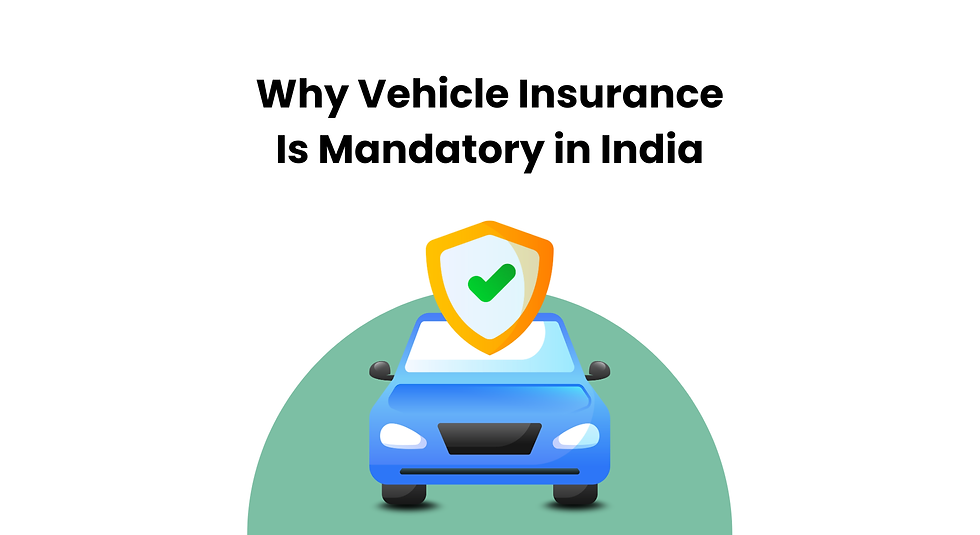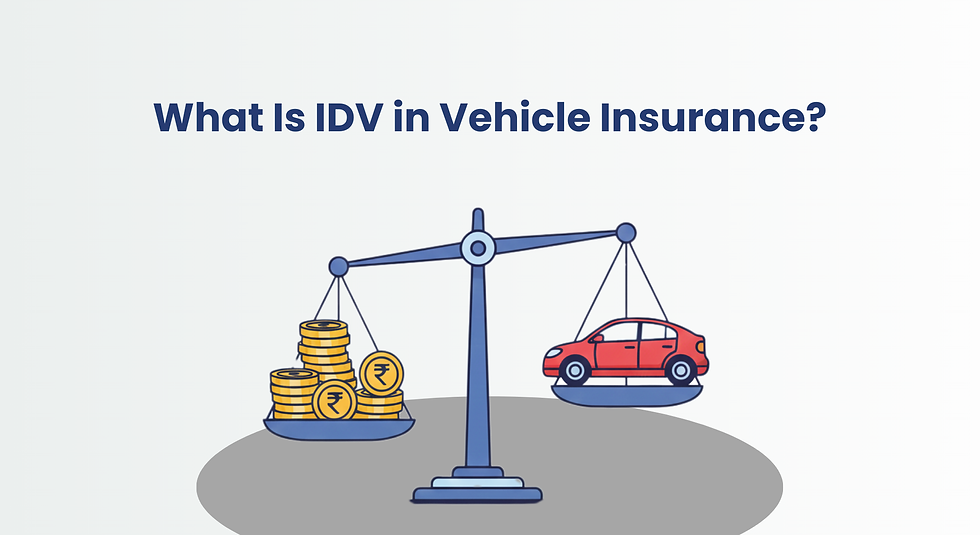Vehicle Insurance Renewal: Common Myths and the Right Practices
- Rohit Lokhande
- Aug 28
- 3 min read
Updated: Sep 9

Summary
Renewing your vehicle insurance may sound simple, but many policyholders fall into common traps and myths that cost them money or reduce coverage. From believing a grace period protects them fully, to thinking renewal with the same insurer is always best, these misconceptions can lead to financial risks. This blog clears the air on common myths about insurance renewal and highlights the right practices to ensure you remain fully protected.
Table of Contents
Myth 1: Renewal Can Be Done Anytime
Myth 2: Grace Period Means Full Coverage
Myth 3: Renewal with the Same Insurer Is Always Best
Myth 4: NCB Is Lost If You Switch Insurers
Myth 5: Policy Renewal Is Just a Formality
Right Practices for Vehicle Insurance Renewal
FAQs
Vehicle Insurance Renewal
Myth 1: Renewal Can Be Done Anytime
Many policyholders assume they can renew their policy whenever convenient. In reality, once your policy lapses, your vehicle is legally uninsured, and you may face penalties if caught on the road.
Right Practice: Always renew before the due date to stay compliant and avoid coverage gaps.
Myth 2: Grace Period Means Full Coverage
Insurers often provide a grace period (up to 90 days) after expiry for renewal. However, during this time, your vehicle is not covered for accidents, theft, or damages.
Right Practice: Use the grace period only as a last resort. Treat your actual expiry date as the real deadline.
Myth 3: Renewal with the Same Insurer Is Always Best
Many people stick with their current insurer without exploring other options. While it feels convenient, you may be missing out on better premiums, claim settlement ratios, or add-on benefits from other insurers.
Right Practice: Compare quotes online and consider switching insurers if you find better value.
Myth 4: NCB Is Lost If You Switch Insurers
A very common misconception is that No-Claim Bonus (NCB) gets reset when you change insurers. In fact, NCB is linked to the policyholder, not the insurance company.
Right Practice: When switching insurers, carry your NCB certificate to continue enjoying the discount.
Myth 5: Policy Renewal Is Just a Formality
Renewal is often treated as a mere extension. But it’s also an opportunity to reassess your coverage needs, add useful riders like zero depreciation, roadside assistance, or engine protection, and update your IDV (Insured Declared Value).
Right Practice: Use renewal as a chance to customize your policy based on your car’s age, usage, and risks.
Right Practices for Vehicle Insurance Renewal
Renew on Time: Avoid lapses to stay legally compliant and financially protected.
Compare Policies: Use online platforms to check different insurers’ offerings.
Preserve NCB: Protect your no-claim bonus by renewing within the grace period or using an NCB protector add-on.
Reassess Coverage Needs: Upgrade your policy with add-ons based on your current driving habits.
Check Insurer’s Claim Ratio: Choose insurers with a high claim settlement ratio for reliability.
FAQ's
1. Can I renew my car insurance after expiry?
Yes, but your vehicle remains uninsured until renewal. Use the grace period wisely.
2. Do I lose my NCB if I change my insurance company?
No, NCB is transferable across insurers.
3. Is it cheaper to renew with the same insurer?
Not always—comparing policies may help you find better coverage at a lower price.
4. What happens if I don’t renew within the grace period?
You lose your NCB benefits and may need a vehicle inspection before renewal.
5. Can I add riders during renewal?
Yes, renewal is the best time to add or remove riders as per your current needs.




Comments